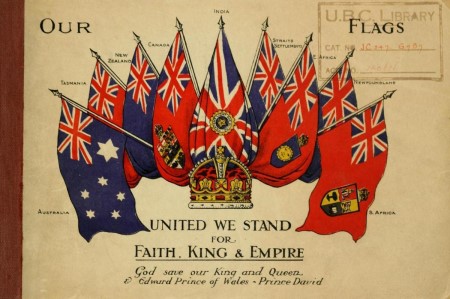Topic 3 – Session 7 – Big Civilization
After the American Revolution, Great Britain began a second and bigger empire. This one included Canada, South Africa, India, and — an entire continent(!) — Australia. It established other key colonies in strategic places around the globe. Much wealth flowed in from its Caribbean islands, from Malasia, the historic land of Egypt, and New Zealand. From its colony of Hong Kong, Britain dominated China’s commerce. To sum up, this was the most consequential empire in history.
But it could not last. After the bad setback from the American Revolution, the British, to their credit, realized that their least bad choice was to allow some of their most advanced possessions to have their own governmental autonomy. Thus, the idea of the British Commonwealth of Nations was born.

Outline
Course Big Civilization
Session 7 Independence
Other Topics for This Session
One| |Two| |Three| |Four| |Five
Further Information
From History Moments Library
| YEAR | TITLE | AUTHOR(s) |
|---|---|---|
| 1775 | Canada Chooses Not Join American Revolution | John McMullen |
| 1783 | After the American Revolution, Where Did the Loyalists Go? |
Sir John G. Bourinot |
| 1899 | The Boer War | Arthur Conan Doyle James F.J. Archibald |
| 1901 | Australian Confederation Proclaimed | J. Grattan Grey |
| 1910 | Union of South Africa Formed | Stephen Leacock |
| YEAR | TITLE | AUTHOR(s) |
From Elsewhere
Reads
British Commonwealth British Dominions Canadian Confederation Canada’s Autonomy Union of South Africa
Videos